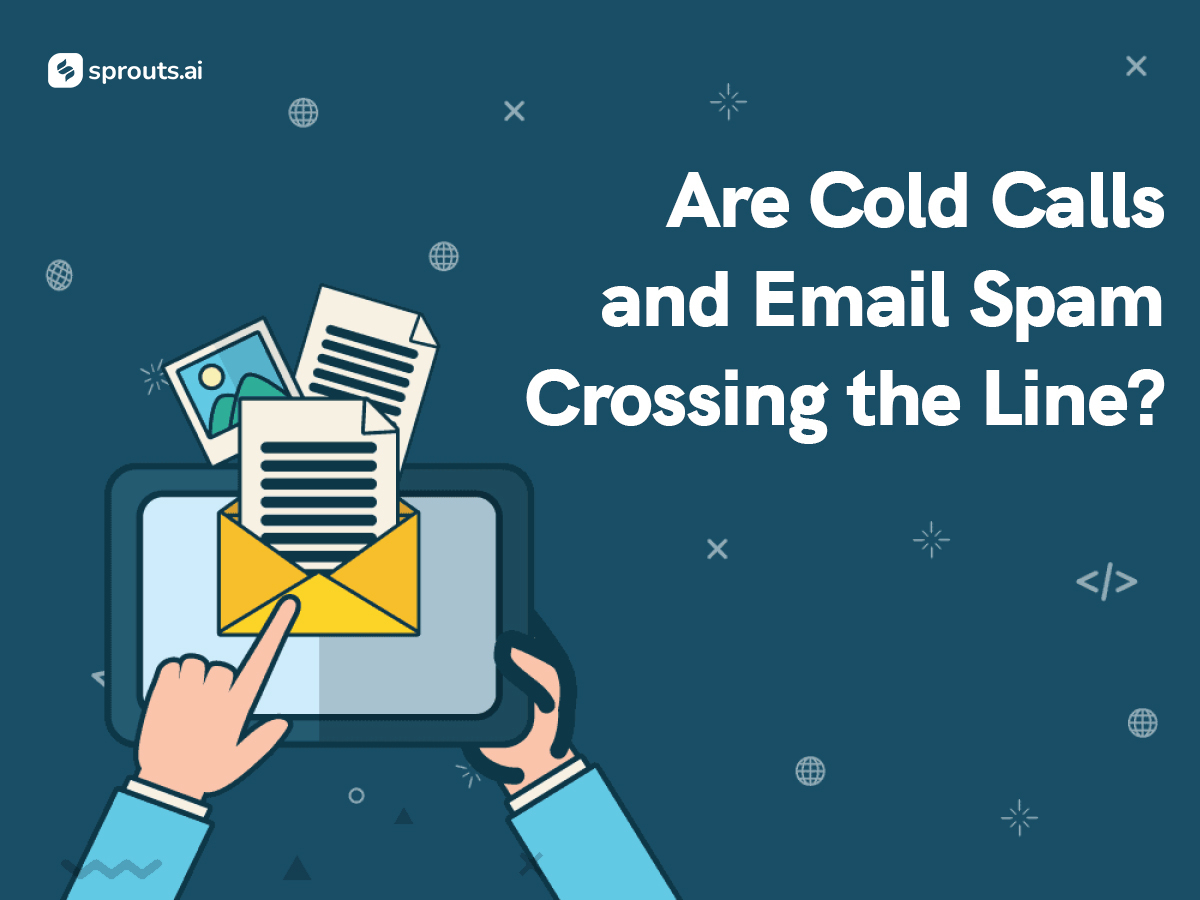It’s not unusual to receive unsolicited phone calls and spammy emails regularly. We’ve all been there – that persistent telemarketer interrupting dinner, or the inbox inundated with offers for get-rich-quick schemes. But as annoying as these intrusions may be, do they cross the legal line? This blog will dive into the murky world of cold calls and email spam, exploring the legal landscape surrounding these practices and questioning whether they’ve gone too far.
To understand the legal issues surrounding cold calls and email spam, we first need to dissect these tactics and their underlying motivations:
- Cold Calls: Pushy or Persistent?
Cold calls involve unsolicited phone calls from businesses or individuals attempting to sell products or services. While some may view these as assertive sales techniques, others perceive them as intrusive and pushy.
- Email Spam: Unwanted Intrusions
Email spam refers to the flood of unsolicited commercial emails that fill our inboxes, often promoting questionable products, services, or even scams. These emails can be a nuisance and pose security risks.
The Legal Framework: What’s Allowed and What’s Not
To determine whether cold calls and email spam cross the legal line, we must explore the existing legal framework that governs these practices:
- Do Not Call Lists and Regulations: Many countries, including the United States, have established “Do Not Call” lists where consumers can register their numbers to avoid unwanted cold calls. Businesses are legally obliged to respect these lists. Various regulations, such as the Telephone Consumer Protection Act (TCPA) in the U.S., restrict the use of autodialers and prerecorded voice messages in telemarketing.
- CAN-SPAM Act: In the U.S., the Controlling the Assault of Non-Solicited Pornography And Marketing (CAN-SPAM) Act regulates commercial emails. It requires senders to provide a clear opt-out mechanism and truthful header information.
- Ethical Considerations: Beyond the legal framework, ethical considerations come into play. What may be legal might still be unethical. Respect for privacy and consent is a key factor.S
The Fine Line: Where Do Cold Calls and Email Spam Stand?
Now that we’ve outlined the legal framework, let’s explore whether cold calls and email spam are crossing the line:
Consent and Transparency: Cold calls often involve reaching out to individuals without their prior consent. While it may be legal under certain circumstances, it raises questions about transparency and respect for the individual’s privacy.Email spam, too, often lacks transparency. Legitimate businesses provide opt-out options and identify themselves clearly, but spammers often employ misleading tactics.
Persistent vs. Intrusive: The line between persistent salesmanship and intrusive harassment is thin. While businesses have a right to market their products, they should do so without overwhelming or harassing potential customers.
Data Protection: GDPR has revolutionized data protection in Europe. The act’s data minimization principles, purpose limitation, and informed consent apply to cold calls and email marketing.
Businesses must diligently handle personal data and ensure it’s not misused or sold to spammers.
The Impact on Individuals and Businesses
Understanding the legal landscape is only part of the equation. It’s essential to consider the broader impact of these practices:
- Individuals’ Well-being: Constant cold calls and email spam can affect individuals’ mental well-being, leading to stress and anxiety. Respecting their choices and privacy is crucial.
- Business Reputation: Businesses that engage in aggressive cold calling or spammy email marketing risk damaging their reputation. Customers are likelier to engage with companies that prioritize ethical and respectful practices.
Innovation and Adaptation
Businesses must innovate and adapt to changing consumer preferences. Invasive tactics may provide short-term gains but can hinder long-term success.
The Future of Marketing: A Balancing Act: As technology evolves and consumers become increasingly digital savvy, the future of marketing will depend on finding the right balance between promotion and privacy:
Permission-Based Marketing: The rise of permission-based marketing, where individuals willingly opt in to receive communications, is a positive trend. It allows businesses to target a more receptive audience while respecting their privacy.
Personalization and Relevance: Effective marketing is about delivering personalized and relevant content. Businesses investing in understanding their customers’ needs and preferences will likely succeed.
Technological Safeguards: Technology can play a crucial role in filtering out spammy content. Improved spam filters and call-blocking features empower consumers to take control of their digital experiences.
As consumers, we also have a role to play in shaping the future of marketing. By supporting businesses that adopt ethical marketing practices and using available tools to protect our digital space, we can contribute to a more respectful and balanced marketing landscape.

